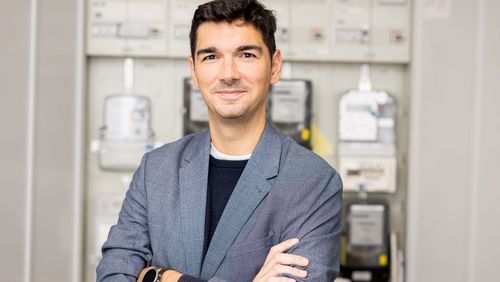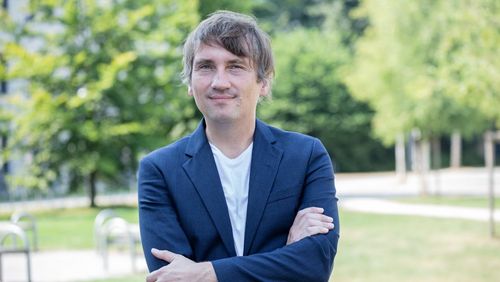Developing an interdisciplinary approach to using artificial intelligence methods for the secure operation of critical infrastructure systems is the goal of a new research group led by Eric Veith at the Department of Computing Science.
The fully autonomous operation of critical infrastructure systems such as power grids or public transport using artificial intelligence (AI) methods poses a major challenge. A new junior research group based at the University of Oldenburg and led by computer scientist Dr Eric Veith aims to develop an interdisciplinary approach that meets the special requirements of operating critical infrastructure systems using AI. The Federal Ministry of Education and Research (BMBF) will provide 757,000 euros in funding over a three-year period for the recently launched project titled “Adversarial Resilience Learning”.
"The approach of the new research group is future-oriented," said University President Prof. Dr Ralph Bruder. "Its interdisciplinary research will bring direct advantages for the operation of critical systems and enhance cybersecurity in this area."
Like robots or software, AI-based learning systems perform tasks autonomously and use algorithms to learn while a system is running. In this way they are able to solve complex problems and develop strategies that would be beyond human capabilities. Computer scientists want to use deep learning and deep reinforcement learning algorithms in the operation of critical infrastructures to make these systems more sustainable and efficient and also increase their resilience in the face of unforeseen events such as cyberattacks. “However, the problem is that the margins for error for a learning system are very narrow when it comes to operating a critical infrastructure, because an error by the system could have potentially catastrophic consequences,” Veith explains.
The research group’s goal is therefore to develop an interdisciplinary approach that combines the current state of research in AI with the stringent guarantees necessary for safe and reliable operation. "Up to now there has been a research gap in this area," Veith says.
To close this gap, the team plans to design a “hybrid architecture” consisting of two components. The first will be an AI-based system that strategically develops itself, and whose results are explainable to the second component of the system, or in other words are comprehensible to it and fed into it. The second part of the architecture is to be based on clearly defined rules, as is standard in the conventional modelling of critical infrastructures. Veith explains: "In this way, the system ultimately learns to use knowledge that is not accessible to humans and still delivers the guaranteed safe behaviour that is necessary for operating infrastructures."
The Oldenburg team is collaborating on this project with experts from Delft University of Technology (the Netherlands), Vanderbilt University (USA), the Stiftung Neue Verantwortung (SNV – a German think tank that deals with political and social aspects of new technologies), the German company Netze BW GmbH and the CEWE Foundation.
Dr Eric Veith's research group is based at the University of Oldenburg’s Department of Computing Science. Veith completed his PhD at the Technische Universität Bergakademie Freiberg in 2017 with a thesis on smart power grids. He then worked as a research associate at the OFFIS Institute for Information Technology, Oldenburg, where he headed the Applied Artificial Intelligence Competence Cluster from 2018 and then the Power Systems Intelligence research group together with Prof. Dr. Sebastian Lehnhoff from 2020. He is also a member of the Learning Systems Platform, the BMBF’s AI platform.




